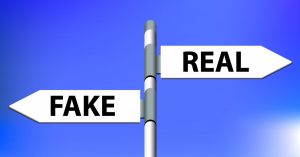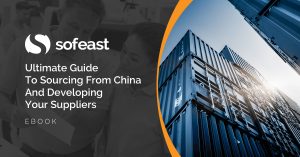As I wrote in How to Check Lab Test Certificates/Reports?, I guess that 10-30% of the product certifications given by Chinese suppliers to their customers are fake.
A “fake” certification is often a real certificate that was issued regularly by an accredited testing laboratory and that was later “photoshopped” to show another product and/or supplier name.
Another popular method is that of obtaining a “real” certificate that doesn’t correspond to actual tests (in other words, the result is always a “pass”). The savviest Chinese suppliers know the exact price for this service.
So the question for the serious importer is: how to get a REAL & LEGITIMATE product certificate, in case the supplier hasn’t already obtained it?
If the supplier ACCEPTS to get product certifications at their cost
As an importer, you are 100% responsible if the products are sold in your country and are found dangerous/illegal. So I advise to micro-manage this process if you have enough time:
- Give your supplier a few names of testing labs you “strongly prefer”. Avoid local Chinese labs if possible.
- Ask to see the application before it is sent by your supplier to the lab. Make sure you get the report directly, at the same time as your supplier. This way, if the tests are failed, you will know about it.
I realize that your relationship with the supplier might not be good enough to request what I suggest above. But it is certainly worth asking for!
If the supplier REFUSES to get product certificates at their cost
I guess some purchasers who read this article will think “the factories I work with will never pay for it”. That’s very probable, unfortunately.
And, if they do pay for it, aren’t they including that cost in the product unit price?
For these reasons, some very sophisticated importers pay for certificates, and what they get in exchange is full control of the situation:
- They get to work with the laboratory they want;
- They receive reports and know when the result is failed;
- The report is issued in their company’s name and the supplier doesn’t even get to see the report.
This last point is more important than it seems. it means the supplier can’t easily use the certificate to sell the same product to other customers.
Any other tips in this case?
+++++++++
Update: Some readers got confused about laboratory tests. Here is an important distinction:
– In pre-production, the manufacturer is supposed to pay for the certification of his product (in case it is subject to regulations such as Rohs, CE, etc.
– In production, the importer is supposed to pay and have samples from the batch to be tested (more details here). Suppliers often use good components for pre-production samples and cheap inputs for production. That’s a huge source of risk.
Ultimate Guide To Sourcing From China And Developing Your Suppliers [eBook]
This FREE eBook starts from the beginning, discussing whether you need to hire a sourcing agent, and follows the sourcing process right through to developing a trusted supplier’s quality and productivity.
There are 15 chapters over 80+ pages to explore, providing exhaustive guidance on the entire sourcing and supplier development process from start to finish, including:
- Identifying suppliers,
- Negotiations,
- Quality inspections,
- Developing Chinese suppliers,
- Improving factory quality and productivity,
- and much more…
Disclaimer
We are not lawyers. What we wrote above is based only on our understanding of the regulatory requirements. QualityInspection.org does not present this information as a basis for you to make decisions, and we do not accept any liability if you do so.



Great information!
– What is the average costs for this tests?
– When a manufacturer add those certifications to his Alibaba page, those alibaba first confirm if it’s real? or they allow everyone to add it?
Thank you
Cost: it depends on the product and on the importing country. Contact me at ra (at) sofeast.com and I will try to help.
Alibaba: of course not, Alibaba doesn’t check these documents. Alibaba is an advertising agency, not a verification agency (despite some of their marketing claims).
Depending on our relationship with the factory we have several different situations with tests.
Some factories already selling in the US market – we expect them to pay for the testing and insist on a US based lab. In our industry (auto brakes) there are 3 well respected brake performance test labs, and the supplier can choose which one.
In other cases where we have an exclusive for the US market, the supplier is often unwilling to
pay for lab testing. We have agreed to pay for the testing ourselves. Then, we run the test
in our name so that the factory cannot use the test report elsewhere.
Additionally we have the condition that if the
tests FAIL, the supplier will fix the problems and pay for re-testing.
To give some examples for the previous post, the typical cost for performance testing of
truck brake shoe/lining is about $2000 to $3000 USD for one test. Strictly speaking, this
testing is not required by US law; but if we were ever involved in litigation for product liability
and hadn’t tested, we would almost certainly lose the product liability suit.
Brake testing in Europe is more expensive, because among other things they require the
testing to reflect the specific vehicle(s) involved while the US standard only involves the
vehicle (axle) weight.
Thanks Brad for sharing how your handle this subject. Very interesting.